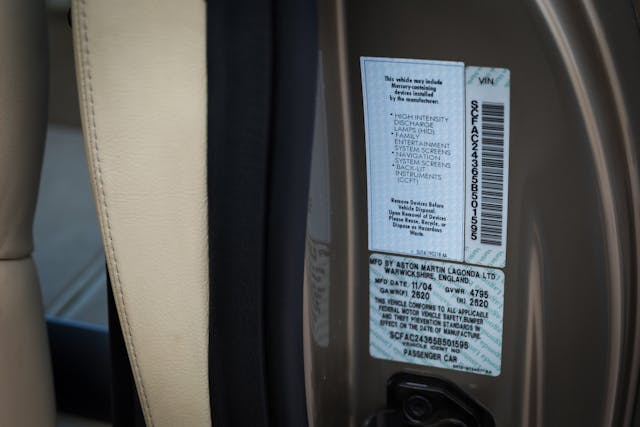7 ways to ensure you won’t get scammed when buying a car
The gang at Hagerty Media occasionally interacts with our readers outside of this website’s comments section, be it at the Lounge in the Hagerty Community, or in an email/phone call behind the scenes. When that happens we shoot to give the best advice as possible (given the nature of armchair quarterbacking), but sometimes the question is so inspiring and/or frustrating that we want to share it with all of our readers. Nothing in the world of online car buying deserves more of the internet’s sweet oxygen than Carvana’s title issues online scammers in the classic/speciality vehicle marketplace.
To wit, one of our readers asked us to weigh in on his experience with an online classified website. It wasn’t one of the big online players, rather one that’s more of a data aggregator masquerading as a place to buy and sell cars. (Don’t laugh, these classified aggregators require only modest effort to make a decent return. More on that notion later.) So without further ado, let’s hear our reader’s pressing issue.
“Hello, I came across an advertisement and saw my dream car, a 1967 Chevelle SS. I sent in an e-mail inquiring about the car and I was told by “the owner” that yes, it was for sale. He also said he was in the Army and stationed in Kuwait. He said he had given the car to a shipping broker. I was to register with them to start the transaction. I was told the money would be held in escrow until I had received the car, inspected it for 7 days, and then could decide if I still wanted the car or not.”

For some buyers, this conversation alone merits an instant “delete from inbox.” For others, it’s maybe more a sign of pink flags than outright red ones. Since the price was right, and since it wasn’t posted on the most famous haven for scammers (Craigslist), our reader was still interested in learning more.
“I live in Canada so it seemed suspicious that someone would ship a car from Milwaukee to Canada and then potentially come pick it up again. All transport costs would be absorbed by the seller. I registered and was sent documentation directing me to wire transfer the entire amount to a Wells Fargo bank. The address for the bank was in Hollywood. I googled the address and saw the bank was in a grocery store. Google also had a post from the owner saying that this location was temporarily closed.”
Now fully embroiled in deep crimson red flags, our reader dug deeper into the proposed procedure before finally asking us for advice.
“I have called the shipping broker a couple of times and have not had a live person answer the phone. Am I being duped? Is this a classic case of fraud? I asked for a new picture of the car with a copy of the ownership and a current newspaper. I have not heard back.”
This is when I suggested to our reader that this was indeed a scam. My reasoning? 1) The car in question was too cheap; 2) There’s no contact information at the vehicle’s physical location; 3) The usage of two words that strike fear in my heart: wire transfer. I suggested he poke the bear and inform the seller he needs to do a pre-purchase inspection before payment. His reply back only reinforced my beliefs about people in our modern dystopia of a society.
“Hi Sajeev, I tried what you suggested. As you thought there has been no response. Locally I heard a horror story of a guy who fell for this, lost his money, and spent two years trying to get it back. I don’t know if he was successful. It would not be a stretch to believe that this sad tale has repeated itself untold times.”
And on that note, let’s run down some reasons why the vehicle you see online might be a scam.

- Talk of payment before a vehicle inspection: Does a car salesman at a dealership ask you for banking info? Of course not! While wire transfers and escrow accounts have merit in our economy, they are a non-starter in the initial stages of buying a car.
- Unexpected yet believable backstory: If the seller has some reason for not being in the same city/state/country as the vehicle, you have a problem. Don’t fall for their need to install a sense of urgency in the transaction, either. Get a local to put their hands on it, or end the conversation immediately.
- Asking price lower than market value: While bargains are possible when shopping locally with cash in hand, the odds drop precipitously once posted to a website with a national reach (or larger). This is one reason why Craigslist breaks down their service to regional subdomains (localcity.craigslist.com) and why Facebook Marketplace is severely skewed to local searches.
- Denial of a pre-purchase inspection: While you don’t have to enlist the services of an outfit like Auto Appraise, the mere threat will either net you renewed trust in the seller or they will promptly ghost you.
- Duplicate images: Do a Google Lens image search on their photos to see if they were posted elsewhere by a different, possibly more legitimate retailer of the vehicle in question.
- Where’s the VIN: While this applies more to newer vehicles, getting the VIN to run a Carfax (or similar service) ensures there isn’t a lien or any other procedural surprises headed your way.
- Questionable websites: While Craigslist can be a dangerous place, the more modern-day classified aggregator can be worse. Hiding under a veneer of legitimacy with superior graphics and interfaces, these aggregators can be a safe haven for scammers of all shapes and sizes. One such “automotive classified aggregator site” I found looked fine on the face of it, but a closer look unraveled the veneer. They lacked links to their corporate social media pages (which requires time and money to keep alive), instead leaving the buttons for Facebook/LinkedIn/Twitter set to their respective default homepages. (Who clicks on those buttons anyway, right?) But more importantly, read the website’s Privacy Policy and Terms and Conditions, normally found at the bottom of the home page.
- Privacy Policy: Be wary of a policy that’s intentionally vague regarding who runs the website, lacks contact information, and doesn’t name a legal entity (like an LLC) anywhere in the text. Compared it to this one, which seems pretty good… to this non-lawyer with no professional expertise in the matter.
- Terms and Conditions: If this pages suggests they “do not sell, trade, or otherwise transfer” any information you provide to them, but then backpedals with “except for parties that assist us, our business partners, etc. as long as they keep this information private” you might be on a classified aggregator. While not a dealbreaker, it’s a good sign to keep up your guard.
- One more thing: While you can find trustworthy sellers with real vehicles on these websites, they must pass the test on #1-6 above to prove their legitimacy.
Perhaps this isn’t a complete list, but it likely covers all the high points. And if you need it to be spelled out even more simply consider this: if you can’t work with someone local to the vehicle and verify its legitimacy (not stolen, no lien involved) with a third party, then it’s best to run away from the deal. A bargain car is just not worth that kind of risk.



Not long ago, my dad mentioned he’d like to buy a car because my mom’s been using their car a lot. I liked what you explained about getting a pre-purchase inspection before buying the vehicle. My dad will be grateful for your intake on how to identify car-selling scammers. https://www.valleyofapplevalley.com/searchnew.aspx